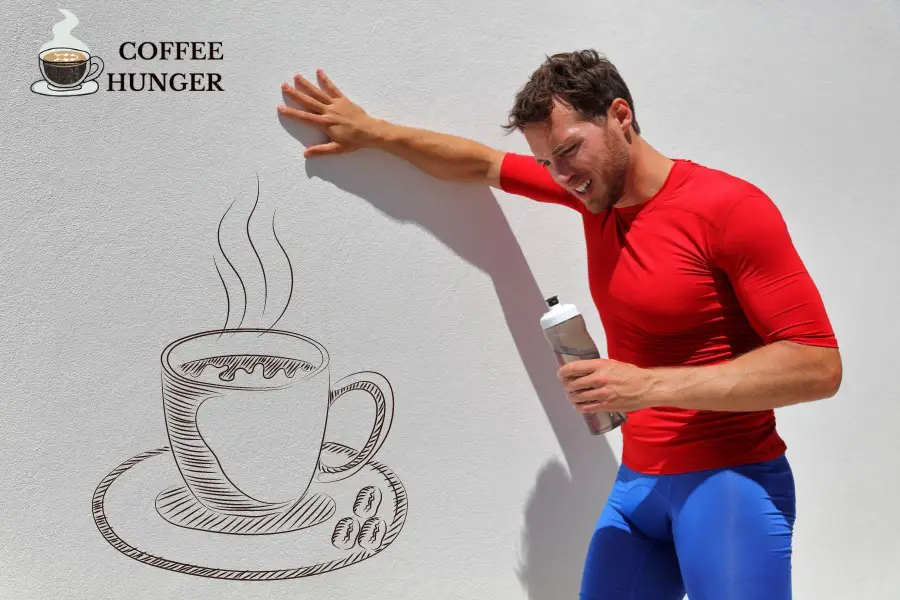Caffeine is a known diuretic, which can have an adverse effect on hydration levels. However, does drinking decaf coffee dehydrate you as well? Decaf coffee may sound like a healthier alternative to regular caffeinated coffee, but does it live up to its reputation?
In this article, we’ll explore the effects of drinking decaf coffee on dehydration and find out whether or not it’s the right choice for keeping hydrated.
What is Decaf Coffee, and Why Does it Matter?
Since decaf coffee is regular coffee devoid of caffeine and hence many may inquire about the reason for consuming decaf coffee. It is well known that caffeine has harmful effects on health, and therefore many coffee consumers may prefer decaf coffee instead of regular caffeinated coffee. The following content discusses decaf coffee and its impact on the consumer. It discusses whether decaf coffee dehydrates the consumer or not.
Overview of Caffeine and its Effects on the Body
Using caffeine is not advised for kids. It is also not recommended for adults and teenagers to drink coffee mixed with drugs and alcohol as that can have adverse side effects on the health and body of the person consuming it.
Pregnant women or nursing staff needs to discuss with the doctors their regular caffeine requirements. It is advised to keep the caffeine requirement to 200 mg daily.
Caffeine consumption can have unwanted side effects in adults. If you consume more than four cups of caffeinated coffee per day (or the equivalent), you have adverse effects like:-
- Headache
- Nervousness
- Insomnia
- Inability to check urination or frequent urination
- Irritability
- Tremors in the muscles
- Rapid heart rate
The Role of Decaffeinated Coffee in Beverage Choices
Decaf coffee is a suitable substitute for these people. Decaffeinated coffee has the following health benefits, it is preferred by many as a beverage.
- Decaf coffee is nutrient-rich and full of antioxidants.
- Liver health, type 2 diabetes, and early death
- Helps to deal effectively with neurodegenerative disorders and aging
- Lowered risk of rectal cancer and heartburn symptoms
When it comes to caffeine tolerance, there is a lot of individual variation. One cup of coffee may be too much for some people, while more may be sufficient for others. While each person’s tolerance differs, healthy individuals should stay under 400 mg of caffeine daily. Four cups of coffee would roughly be the equivalent of this.
Lack of sleep and high blood pressure from excessive consumption can raise the risk of heart attack and stroke. Additionally, too much coffee can overwhelm the central nervous system, leading to agitation, anxiety, digestive issues, cardiac arrhythmia, or trouble sleeping in sensitive people.
Caffeine-sensitive individuals may want to minimize their consumption of normal coffee or convert to decaf or tea. Caffeine-restricted diets may also be necessary for those with specific medical issues. People who take prescription drugs that may interact with coffee are included in this. Women who are expecting or nursing should also cut back on their caffeine consumption. The same advice is given to children, teenagers, and people with anxiety diagnoses or sleep issues.
What is Dehydration?
Dehydration is the process of losing body fluids. Whenever a person loses body fluids compared to intake of the fluids then, dehydration occurs. This phenomenon occurs if the lost body fluids are not replaced.
Dehydration among kids is caused by severe vomiting and diarrhea. Aged people have lower amounts of water in their systems, and they are known to suffer from diseases, or they are known to take medications that make them more prone to losing body water and becoming dehydrated.
This implies that small ailments like stomach or bladder infections can cause aged persons to lose body water and become dehydrated. Besides, if an individual doesn’t drink adequate water in the hot weather, particularly if the individual is moving hard, then that person can suffer from dehydration.
Intake of fluids can help the dehydrated person recover from mild or moderate dehydration. However, if the person is suffering from severe dehydration, then it requires prompt medical attention.
Symptoms of Dehydration
The following are the symptoms that are associated with dehydration:-
Dehydration in newborns or kids
- Dry tongue and mouth
- Absence of sobbing tears
- No wet diapers for a prolonged period
- reduced cheekbones and eyes
- Vacillation or irritability
Dehydration in adults
Adults rarely urinate but feel extremely thirsty
- Urinate with a deep color
- Fatigue
- Dizziness
- Confusion
When to visit a doctor?
If you or a loved one experience any of the following, then it is recommended that you visit a doctor as soon as possible:
- If you experience diarrhea for at least 24 hours
- Is agitated or confused and significantly more sleepy or inactive than usual
- Can’t keep fluids down
- Pass out bloody or dark stools
Some Causes of Dehydration
This can happen when you’re busy or ill, or when you’re traveling, trekking, or camping and don’t have access to safe drinking water.
Other reasons for dehydration include the following:-
-
Nausea and vomiting
Severe acute diarrhea, or diarrhea that appears abruptly and violently along with vomiting, can rapidly lose electrolytes and water.
-
Fever
Higher fever enhances the risk of the medical condition of dehydration. If you have diarrhea, vomiting, and a fever, the condition gets worse.
-
Excessive perspiration
Sweating causes water loss. If you engage in strenuous activity without replenishing lost fluids, you risk becoming dehydrated.
-
A rise in urination
Dehydration is a side effect of various drugs, such as diuretics and some blood pressure medications, mostly because they make you urinate more frequently.
Different Types of Decaffeination Processes
There are four key steps in the complex, scientific process of decaffeinating coffee beans, some of which use solvents and others that do not. These steps are listed as follows:-
-
Direct solvent process
The coffee beans are steeped in water that is almost boiling for several hours in the indirect-solvent process to extract the caffeine as well as other flavorings and oils from the beans.
The water is then separated and moved to another tank, where the beans are washed with methylene chloride or ethyl acetate for roughly 10 hours. After forming a strong chemical link with the molecules of caffeine, the chemical solvent is next heated to evaporate it along with the caffeine.
To reabsorb the majority of the coffee oils and flavor components, the beans are lastly reintroduced to the liquid.
-
Indirect solvent process
The beans are steamed for roughly 30 minutes to open their pores in this decaffeination process. The beans are then rinsed with solutions like ethyl acetate or methylene chloride for approximately 10 hours to remove the caffeine once they are open to a solvent. After draining the solvent containing the caffeine, the beans are steamed to eliminate any remaining solvent.
-
Swiss or Mountain water process
In contrast to everything we’ve seen so far, this method of decaffeination doesn’t add chemicals directly or indirectly to extract the caffeine. Instead, decaffeinating coffee beans solely relies on two ideas, namely solubility and osmosis.
To dissolve the caffeine, a batch of beans is first soaked in extremely hot water. Water filtering is accomplished by utilizing activated charcoal. This porosity of the filter is designed to trap larger caffeine molecules while allowing smaller molecules of oil to pass through.
While the flavor-rich water is reused to take the caffeine out of a new batch of coffee beans, the tasteless caffeine-free beans are discarded.
Only caffeine goes from the coffee beans to the water since the flavor components in this water have already been absorbed, making it impossible for the flavors in this new batch to dissolve. The end outcome is decaffeination without a significant flavor loss.
-
Carbon dioxide process
It only releases the alkaloid in response to caffeine, acting on that substance.
Coffee beans are steeped in water and then stored within an extraction vessel formed of stainless steel to undergo the process of CO2 decaffeination. Caffeine extraction from the coffee is done by sealing the extractor and applying pressure of roughly 1,000 pounds per square inch to liquefy the CO2.
The larger-molecule flavor components are left behind while the CO2 serves as a solvent to dissolve and pull the caffeine from the coffee beans. The absorption chamber is the next container to which the caffeine-rich CO2 is delivered. Here, the pressure is released, the caffeine is left behind, and the CO2 returns to its gaseous condition. It is pumped back into a pressurized container for reuse, the caffeine-free CO2 gas. This method is mostly used to decaffeinate large amounts of less unusual, commercial-grade coffee found in grocery shops due to its expense.
Dehydration Effects of Decaffeinated Coffee:
Naturally, you might be worried about how coffee would affect your ability to stay hydrated. It makes sense that you might wonder if caffeine, which has a slight diuretic effect (making you urinate more frequently), would lead you to lose more water and get dehydrated.
Since decaffeinated coffee has virtually all of its caffeine removed during processing and the diuretic impact of coffee is caused by its caffeine concentration, drinking decaf may not cause you to urinate more frequently.
Caffeine-containing beverages like regular coffee don’t induce excessive fluid loss when consumed as part of a regular routine. Caffeinated beverages may have a moderate diuretic effect, which may make you feel the need to urinate, but they don’t seem to make you more likely to get dehydrated.
FAQ
Q 1) Does decaf coffee dehydrate your skin?
Ans: Coffee (even decaf) can dry you and cause your skin to become sagging since it includes caffeine, a diuretic (water-losing) action. Coffee use has also been linked to decreased cutaneous circulation due to blood vessel constriction.
2. Does decaf coffee make you thirsty?
Ans: Although it may seem clear, decaf coffee does not promote dehydration. But why does drinking it make my mouth feel dry? This is due to your saliva temporarily being halted by the tannins in tea and coffee that bond to it.
3. Is drinking decaf coffee similar to that drinking water?
Ans: It must be emphasized, though, that decaffeinated coffee has no diuretic effects and is a great way to stay hydrated all day. Decaf coffee is not a diuretic, therefore. It makes people urinate roughly as much as water does.
4. What happens when you drink decaf coffee every day?
Ans: Decaffeinated coffee has been found to induce much less acid reflux than coffee that is not. Additionally, having two or more cups of decaf coffee each day may reduce your chance of acquiring rectal cancer significantly.
5. Does Decaf Coffee Cause Dehydration?
Decaf coffee does not cause dehydration. However, a great deal of scientific research has been done in the last 100 years to show that it has a very small impact on hydration levels. Although it may seem clear, decaf coffee does not promote dehydration.
6. Is decaf coffee less dehydrating compared to regular coffee?
Higher caffeinated coffee will have a slight diuretic impact that will cause you to urinate more frequently, as per online data. Decaffeinated coffee has comparable hydrating effects overall.
7. Are there any adverse effects of using decaf coffee?
Can decaffeinated coffee affect your health? The term “decaf” refers to coffee that has very little caffeine but has a similar flavor and looks to regular coffee. No proof consuming decaf coffee causes harm to an individual’s health.
8. Does decaf coffee restrict the flow of blood in the blood vessels?
In particular, participants who consumed caffeinated coffee over decaffeinated coffee experienced a 30% increase in blood flow over 75 minutes.
Conclusion
Thus this content write-up features everything that the readers or the audience need about decaf coffee. It also highlights that coffee devoid of caffeine is not as harmful as regular coffee and does not cause dehydration among consumers. The content also provides information about ways and means to manufacture decaf coffee.
Also Read:
Does Starbucks have Decaf Iced Coffee?
Does Starbucks Serve Decaf Iced Coffee?
How soon can you drink Coffee after taking Omeprazole?


